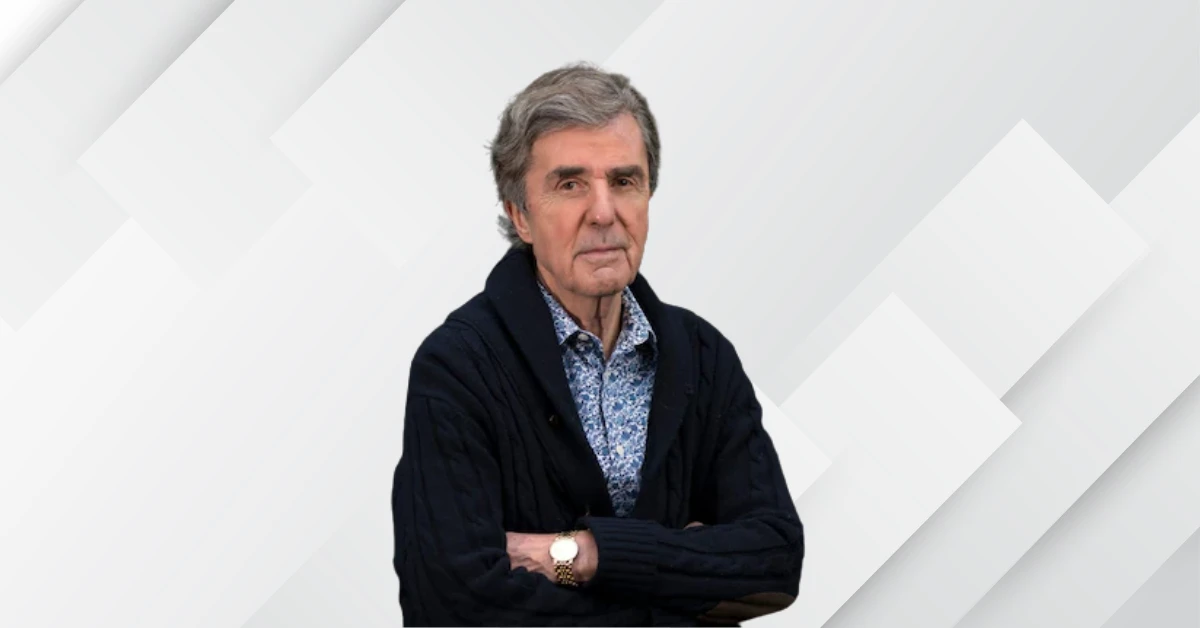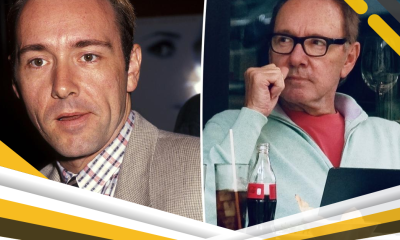John Stapleton Final Broadcast: A Legacy of Resilience and Advocacy

The broadcasting world recently mourned the loss of a true stalwart, John Stapleton, a journalist whose career spanned over five decades, marked by integrity, a commitment to public service, and remarkable resilience.
His final television appearance, just months before his passing, provided a poignant capstone to a legacy built on honest reporting and courageous advocacy. It was a moment that underscored his unwavering dedication to transparency, even in the face of personal adversity, solidifying his image as a journalist who truly connected with the public.
Personal Details
| Full Name | John Martin Stapleton |
| Born | February 24, 1946, Oldham, Lancashire, England |
| Died | September 21, 2025 (aged 79), in hospital due to complications from pneumonia related to Parkinson’s disease |
| Occupation | Journalist, Broadcaster |
| Spouse | Lynn Faulds Wood (married 1977; died 2020) |
| Child | Nick Stapleton |
| Known For | Presenter/Reporter on ITV (TV-am, GMTV, Daybreak, Good Morning Britain), BBC (Nationwide, Watchdog, Panorama, Newsnight) |
| Awards | Royal Television Society’s News Presenter of the Year (2003) |
A Distinguished Career in Journalism
John Stapleton’s journey in journalism began in the 1960s on local newspapers in North West England, including the Eccles and Patricroft Journal and the Oldham Evening Chronicle, before he transitioned to Fleet Street with the Daily Sketch. My understanding is that this foundational experience in print journalism honed his reporting skills, providing a robust base for his move into the burgeoning world of television.
He first stepped into television as a researcher and scriptwriter for the BBC’s This Is Your Life, eventually becoming a reporter for Thames TV’s regional news program, Today, from 1971 to 1975. His reputation for diligent reporting grew, leading him to join the BBC’s flagship current affairs program, Nationwide, in 1975, where he became one of the main presenters from 1977 until 1980. During this period, he undertook significant investigations into council corruption and protection rackets, showcasing his early commitment to impactful journalism.
The early 1980s saw him as a correspondent for critically acclaimed BBC programs like Panorama and Newsnight, reporting from global hotspots such as the Middle East, El Salvador, and notably, Argentina during the Falklands War.
This demonstrated his versatility and ability to cover complex international stories with depth and authority. He then joined ITV’s breakfast television, TV-am, in 1983 as a reporter and presenter of Good Morning Britain.
Perhaps one of his most recognized roles was co-presenting the BBC’s consumer affairs program Watchdog alongside his wife, Lynn Faulds Wood, from 1986 to 1993. Together, they became a formidable duo, celebrated for their fearless investigations into scams, corporate malpractice, and unsafe products, earning the trust of millions of viewers.
Their partnership on screen was unique, blending professional acumen with personal chemistry, which greatly resonated with the audience.
His career continued to flourish across ITV, including presenting The Time, The Place, and My Favourite Hymns, before he became a key figure on GMTV, co-hosting The News Hour with Penny Smith from 1998. He anchored significant global events, including four US elections, the 2004 Boxing Day tsunami, Pope John Paul II’s funeral, and Hurricane Katrina.
His work, particularly his coverage of the 2003 Iraq War and interviews with political leaders like Tony Blair, earned him the Royal Television Society’s News Presenter of the Year award in 2003. Stapleton continued with ITV’s breakfast shows, including Daybreak and Good Morning Britain, until 2015, remaining a respected and familiar face on British television.
The Final Broadcast: A Moment of Reflection and Transparency
While not a traditional “farewell” broadcast, John Stapleton’s final television appearance was profoundly significant, occurring just months before his death. In June 2025, he appeared on BBC One’s Morning Live to discuss his diagnosis with Parkinson’s disease, which he had publicly revealed in October 2024.
I find this appearance particularly poignant, as it showcased his unwavering commitment to public openness, even when confronting deeply personal health challenges.
During this broadcast, Stapleton candidly spoke about the impact of Parkinson’s, detailing the tremors, increasing stiffness in his limbs, difficulty with grip in his left hand, and occasional loss of balance. He acknowledged the frustration of communication difficulties, saying, “Speaking is how I’ve earned my living for the best part of 50 years,” emphasizing the personal toll the condition was taking.
Despite the challenging nature of his diagnosis, he maintained a pragmatic and positive outlook, stating, “There’s no point in being miserable… Parkinson’s is here with me now for the rest of my life. Best I can do is try and control it and take the advice of all the experts”.
His son, Nick Stapleton, who also appeared on the program, highlighted that the diagnosis was “deeply troubling news” but not entirely unexpected, given his grandmother had also battled Parkinson’s. This final appearance was a testament to John Stapleton’s courage, transforming a personal health struggle into an opportunity to raise awareness and foster empathy for others living with neurological conditions.
A Legacy of Resilience
John Stapleton’s career and personal life were punctuated by notable instances of resilience. His ability to navigate diverse journalistic roles, from reporting on war zones for Newsnight to hosting consumer affairs on Watchdog and engaging in morning television, speaks volumes about his adaptability and enduring professional strength. He maintained his credibility and warmth across these varied platforms, a feat that few journalists achieve successfully.
Beyond his professional flexibility, Stapleton also demonstrated profound personal resilience. In 2008, he publicly revealed his past struggle with anorexia nervosa, an admission that was rare for a male broadcaster and helped to destigmatize eating disorders among men. This openness provided a glimpse into a private battle, showcasing his strength in overcoming and sharing such a deeply personal experience.
Following the passing of his beloved wife, Lynn Faulds Wood, in 2020 after a stroke, he continued his work, grappling with the profound loss of both his life and professional partner. Then, his Parkinson’s diagnosis in 2024 presented another significant challenge, yet he chose to face it publicly, transforming it into a platform for advocacy and awareness. His decision to continue engaging with audiences and even challenging himself to learn singing for a Children in Need fundraiser (advised for vocal exercises) exemplifies his unwavering spirit.
Advocacy and Impact
John Stapleton’s legacy is deeply intertwined with his role as an advocate. His work on Watchdog, co-presented with Lynn Faulds Wood, established them as consumer champions who rigorously exposed corporate wrongdoing and fought for the rights of ordinary people. Their investigative journalism frequently led to tangible results, including government inquiries and product recalls, setting a high standard for consumer protection broadcasting.
I believe their combined passion and detailed reporting empowered countless viewers to challenge unfair practices and demand accountability from businesses and institutions.
His advocacy extended beyond consumer rights. By openly discussing his past struggle with anorexia, he courageously addressed a sensitive topic, helping to break down stigmas surrounding mental health and eating disorders, particularly among men. This act of personal disclosure served a broader public good, encouraging more open conversations and potentially inspiring others to seek help.
More recently, his transparency about his Parkinson’s diagnosis in 2024 became another significant act of advocacy. Through interviews and his final television appearance, he provided a public face to a complex neurological condition, explaining its effects and sharing his pragmatic approach to living with it.
This willingness to be vulnerable and inform the public about his health journey resonated deeply, contributing to greater understanding and empathy for those living with chronic illnesses. Colleagues lauded him for being “calm in chaos” and “a gentleman of journalism,” attributes that undoubtedly underpinned his impactful advocacy.
Enduring Influence
John Stapleton’s enduring influence on British broadcasting is undeniable. He left an indelible mark through his authoritative yet compassionate journalism, which spanned diverse formats and covered some of the most critical events of his era.
Tributes from across the industry remember him as a “legend in broadcasting,” a “consummate pro,” and a “genuinely lovely man”. His versatility was unmatched, able to seamlessly transition from hard-hitting international reports to consumer affairs and the lighter touch of morning television.
His partnership with Lynn Faulds Wood on Watchdog fundamentally changed how consumer rights were addressed on television, creating a blueprint for investigative journalism that held power to account and empowered viewers. Their dynamic set a standard that continues to influence consumer affairs programming today.
Furthermore, his courageous openness about his personal health battles, from anorexia to Parkinson’s, modeled a new form of journalistic integrity – one that embraces vulnerability for the sake of public awareness and destigmatization. I am confident that his legacy will continue to inspire future generations of journalists to pursue truth with empathy, resilience, and a deep sense of public responsibility.
Conclusion
John Stapleton’s career was a masterclass in committed journalism, defined by a unique blend of analytical rigor, approachable warmth, and an unwavering dedication to advocacy. His final broadcast, discussing his Parkinson’s diagnosis, was not merely an update on his health but a powerful extension of his lifelong commitment to transparency and public service.
It served as a reminder that even in personal struggle, there is an opportunity for connection and education. As we reflect on his extensive contributions to both the BBC and ITV, it becomes clear that John Stapleton’s legacy is far more than a collection of reports and programs; it is a testament to a journalist who consistently demonstrated resilience in the face of challenges and used his platform to champion the public, leaving an indelible mark on the landscape of British broadcasting.












